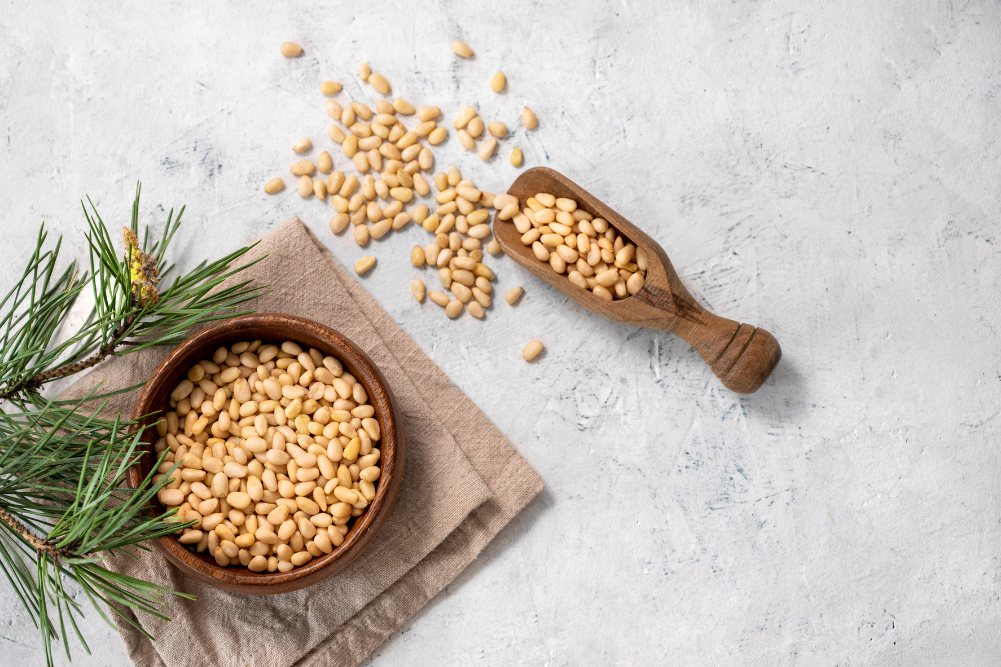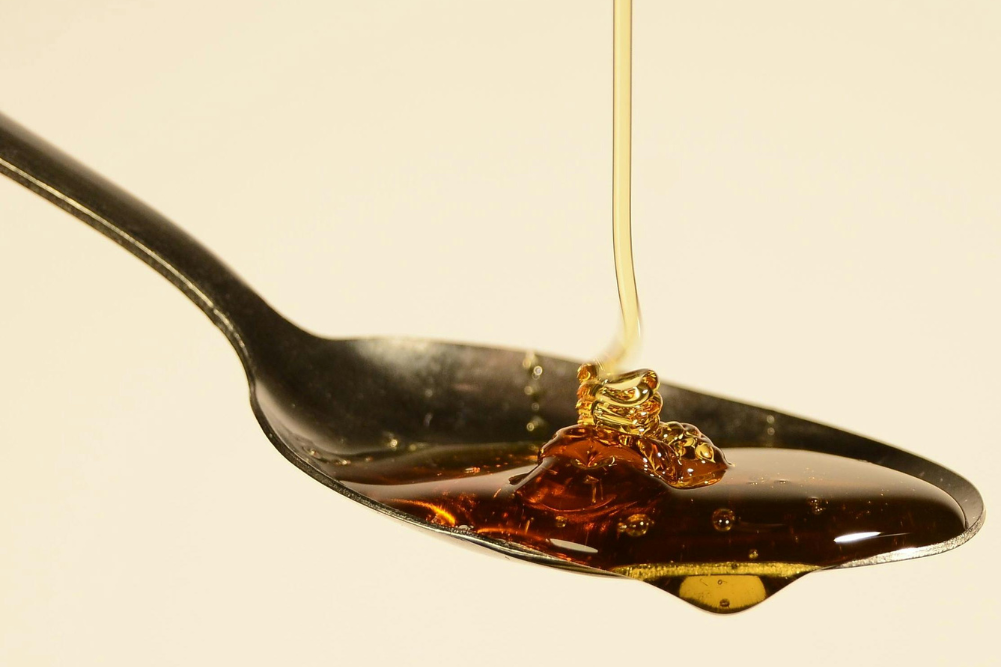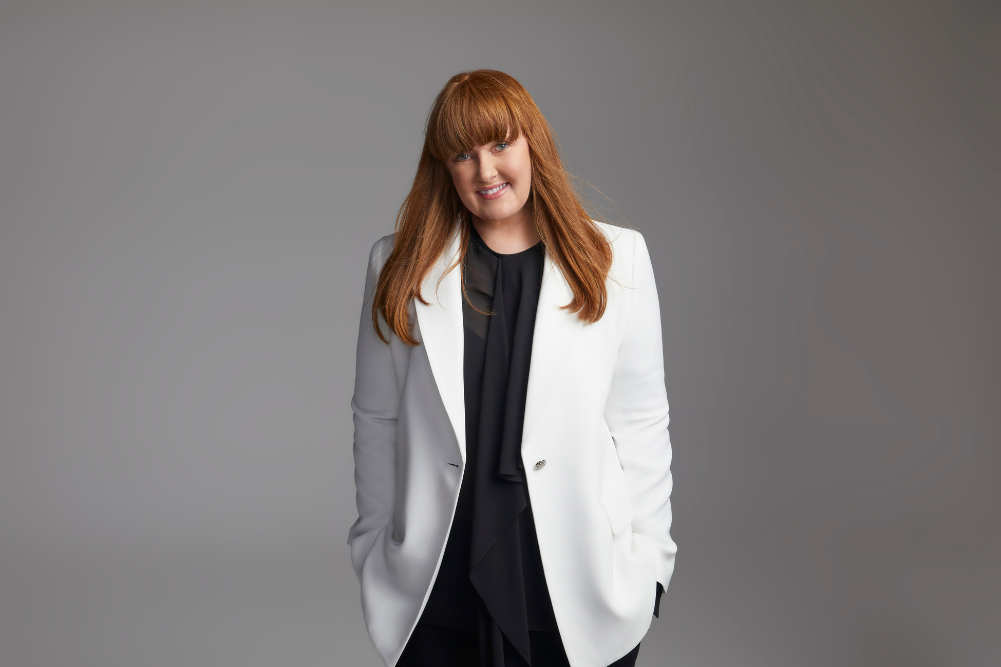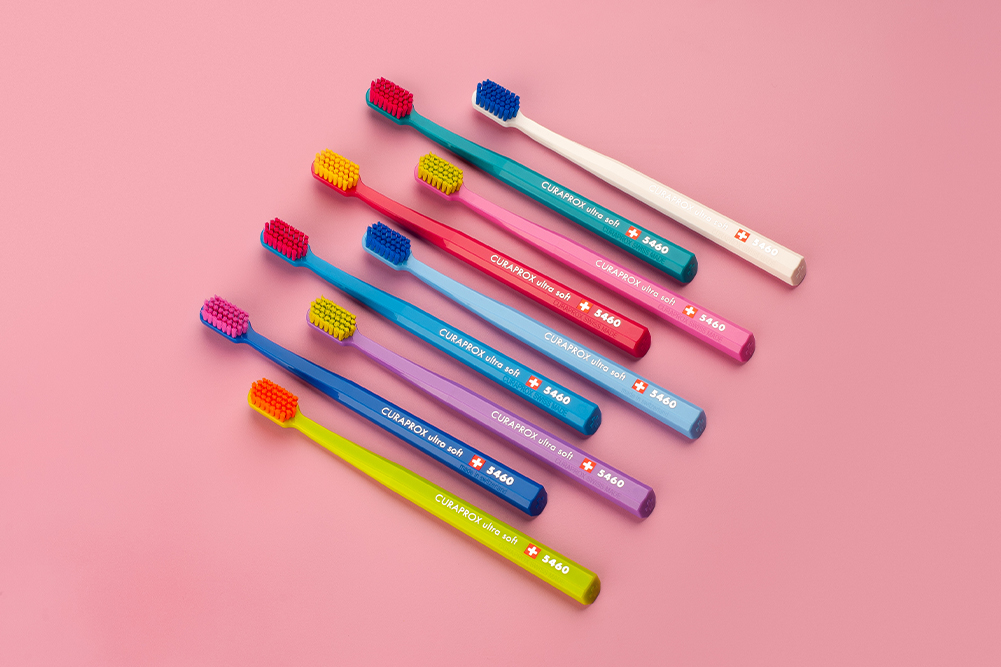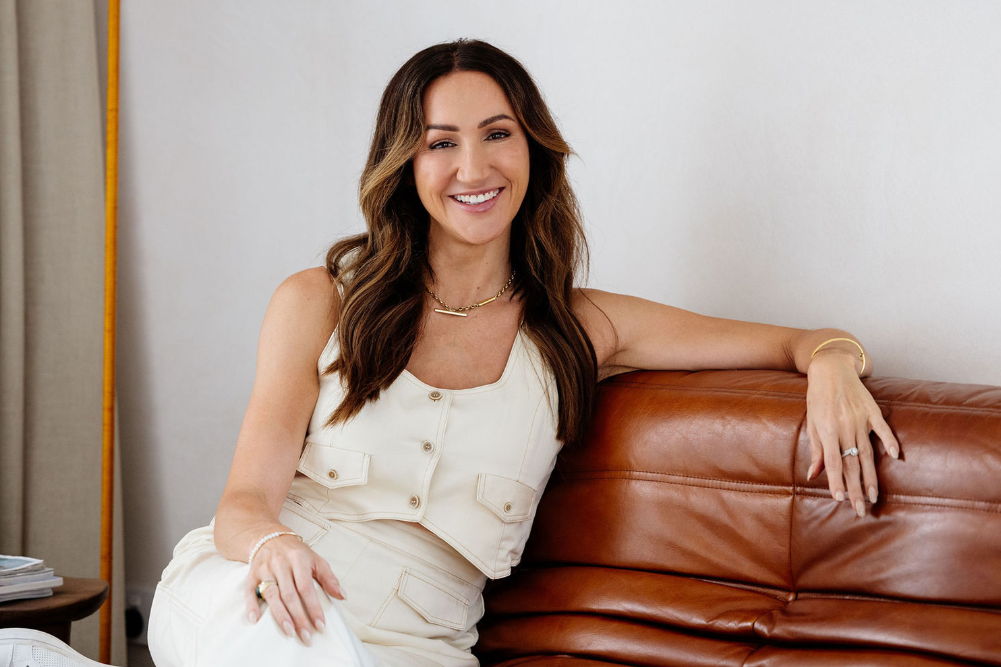Marlee Silva: Creating Change Through Story Telling
Marlee Silva is a proud Gamilaroi and Dunghutti woman, a published author, host of multiple podcasts and an accomplished sports reporter and broadcaster. This is her story.
“Growing up, even though sport was a big part of my life, it didn’t feel like a place for girls,” says Gamilaroi and Dunghutti woman Marlee Silva. “Even though all my friends were on sporting teams, and we were passionate about it, and we loved every single sport we could absorb, it just still didn’t feel like a place for us. But now it does.
“And it’s only growing, particularly recently with the Matildas, which is probably the most emotional I think I’ve ever been about any kind of sporting event, because it matters. And particularly for the next generation who’s growing up in this era. You know, imagine what they can do.”
At only 28, Silva has worked hard to find her place. She’s a published author, host of multiple podcasts and an accomplished sports reporter and broadcaster. She also sits on the board of ID. Know Yourself, an Aboriginal-led mentoring service for First Nations children and youth living in out-of-home care, and Cultural Choice Association, an Aboriginal youth suicide-prevention organisation, and Silva actively volunteers to help with their programs.
But at the heart of everything Silva does is her dedication to creating positive change through storytelling, whether that’s by sharing tales of inspiring Indigenous women in her book or shining a light on Australia’s great female athletes on television.
Supermarket autographs
Silva is a proud Gamilaroi and Dunghutti woman, a published author, journalist, podcaster and sports reporter. Born and raised in a small bayside suburb in Dharawal Country, the Sutherland Shire, south of Sydney, Silva’s childhood wasn’t like many of her peers.
“My dad [Rod Silva] was a professional rugby league player, which added a unique experience to my upbringing,” says Silva. “My earliest memories are of time spent at football stadiums. I was very used to seeing my dad on TV, or having random people ask him for photos and autographs.”
But aside from being the daughter of a professional athlete, Silva’s childhood was very different to that of her parents, something she didn’t recognise and appreciate until she was older.
“Because my mum and dad grew up poor, never went to university and had to fight for everything, they were just excited to see me finish school,” says Silva. “Whatever I would do after that they’d be pretty proud of. All of those factors set me up to be able to truly pursue whatever it was that I found the passion for and that provides the context for that passion, which is telling stories.
“I was an enormous bookworm and devoured everything I possibly could. I have diaries from when I was five of stories that I was writing, or me retelling dreams that I had and things like that.”
Striving to succeed
But growing up as academically smart didn’t prevent Silva from often feeling like a social outsider as a teen.
“It was a few weeks into high school,” says Silva. “My dad picked me up from school one day and I had peers ask me why my dad was black, whether he was my real dad and why I was white. And that set off this massive chain reaction of every stereotype under the sun for the next six years of my schooling … because of my light-coloured skin, I’d had a type of white privilege that had protected me from racism before.”
But it was this sense of loneliness that motivated Silva to work harder to succeed. “I think that’s why I threw myself into all my work stuff, because I was like, ‘I can do the work stuff and I can build this career.’”
After her second year of studying creative writing at the University of Wollongong, at only 20 years old, Silva took a year out of study to be appointed the co-CEO of the Australian Indigenous Mentoring Experience (AIME), an organisation that provides a structured educational program and mentoring opportunities for Indigenous high school students. Despite the title, Silva says the position was “essentially an apprenticeship program, where I’d spend 12 months shadowing the work of the CEO of the organisation.”
But from her role with AIME, Silva was awarded a university scholarship to study at the Summer Institute of General Management at Stanford University in the US, which she says gave her the confidence to pursue bigger and wilder dreams than she ever had before.
Social storytelling
It was social media where Silva started to capture the attention of an audience and where she discovered it could be an effective storytelling tool to advocate for change.
“I have always used my personal social media as a place to express myself, whether that’s writing long captions on my own posts or using Instagram stories to share things that I’m passionate about,” says Silva. “People started to pay attention because the power of social media is that you don’t need to have any kind of profile or any kind of importance to share what you believe on socials. Sometimes that can be a really toxic thing but, other times, it can mean that stories that are otherwise untold in mainstream media get heard or get expressed for the first time.”
Silva’s posts caught the attention of Mia Freedman, founder of women’s media company Mamamia. Freedman offered Silva her own podcast, Tiddas 4 Tiddas, where Silva could utilise her storytelling skills to have candid and personal conversations with other Aboriginal women.
Silva recalls: “When I first had my first podcast with Mamamia, I quite often would get messages from middle-aged, middle-class, white women who had never engaged with stories of Aboriginal women before and who said their eyes were opened in ways that felt very confronting, but that they were also really grateful that they could learn about these sorts of things in a safe space and feel like they were invited in to learn and grow and be better.”
Her passion for storytelling attracted a publisher, and Silva soon wrote a book, My Tidda, My Sister: Stories of Strength and Resilience from Australia’s First Women, published in 2020.
“I got on a plane once, flying to Melbourne for a work event,” says Silva. “The flight attendant who was serving me came up to me at the end of the flight and was like, ‘You don’t know me, but your book resonated with me so much. I feel like I’ve not done enough as a non-Indigenous person to be an ally. It’s inspired me to reconnect with one of my closest friends from high school who was an Aboriginal girl who I just lost touch with when we graduated. I thought about all the things that she faced at school that I didn’t realise were happening at that time. It’s helped bring us back together.’ I was like, holy moly, that’s pretty cool. And I guess that’s what my hope was with the book: to open people’s eyes and invite people in.”
Chicks and balls
With the launch of her book, transitioning into freelancing full time and COVID-19 lockdowns happening in the same year, Silva started to feel burned out and was craving change. She considered returning to university to retrain, seeking a career with more structure and clearer expectations.
“Then I was like, ‘Actually, there’s no way in hell that I can do that. Who am I kidding? I need to be telling stories,’” she says. “And the other big part of my identity, of who I am, what I’m passionate about and where I can see change being made, was in sport, particularly women in sport.”
It was during the lockdown that Silva, her sister and a close friend connected over their love of sport, watching games that were happening elsewhere in the country and being inspired by the female athletes they watched on television at the Tokyo Olympics. “But what we saw was an enormous gap between fan-led content around sport and that with women’s voices in it,” says Silva. “There were lots of mainstream sports network reporting, but there’s been this emergence of fan-led content, particularly in the rugby league space for a couple of years now. And we enjoyed that content, but we didn’t feel we could comment on it or engage with it without being attacked by the very heavily male audience.”
With time on their hands during the pandemic, they started their own podcast called Chicks and Balls, sharing sports stories of both male and female athletes, which helped Silva realise her next direction. When a former colleague secured a youth-focused sports show on ABC Sport, he asked Silva to co-host.
This role led to several sideline commentary spots with Grandstand in the NRL and NRLW coverage. Silva was then offered a reporting role with Nine’s Wide World of Sports and continues to work for the Nine Network as a journalist and sports reporter, allowing her to utilise her storytelling skills to strive for better representation of women in sport.
Good sport
Despite growing up as the child of a professional athlete, the feeling that sport wasn’t a place for girls stayed with Silva throughout childhood.
Silva recalls: “I was always playing sport, my sister was always playing sport, we were always encouraged to. We were just never taken very seriously … We didn’t see women’s games televised really. I went to as many Diamonds and netball games as I could, but I don’t remember ever seeing them on TV.”
But little girls not seeing women’s sport televised is gradually shifting towards a thing of the past. A 2022 survey carried out by pay-television broadcaster Foxtel found that popularity of women’s sports had increased, with two thirds of Australians having tuned in to watch women’s sports on TV. The same survey found that two-thirds of all viewers across AFLW, NRLW and the WBBL are men. With “The Matildas Effect” and popularity of the 2023 Women’s World Cup, these numbers are only likely to increase.
And although the women on the pitch are often the ones praised for changing the face of women’s sport, Silva feels that those telling their story from the sidelines also have a big impact.
“I think that in terms of the pursuit of equality in sport for women, it cannot be done without there being women in broadcasting,” says Silva. “It’s really nice to see that my perspective is respected when it comes to making sure that we’re telling the women’s stories of the NRLW, not only that but telling them correctly. I think that there’s a certain feminist lens that we can put over the story that we’re telling, or the way that we’re reporting on particular games, that can’t be achieved by male broadcasters.”
And it’s not only those watching her on screen that Silva hopes to have an influence on, but on some of her male colleagues, too, particularly when it comes to how to engage young women with sport.
“Being able to open the eyes of some of my far more experienced and older colleagues, who are men, to think about what actually engages the audience who cares about NRLW, which statistically are 18-yearold girls is important,” Silva explains. “Research also tells us that 18-year-old girls are more interested in the personalities of the athletes than what’s actually happening on the field when it comes to content that they’re absorbing. So being able to relay that and talk to them, and to reflect on what it was like to be that age, or what I would have liked to know as a fan, that’s what I see my role is. I think the more women that are in this space, the more perspectives that we can have.”
And Silva still utilises social media as a platform to encourage positive change and better representation through storytelling. “I still share a lot of my own clips of me talking on Today Extra or other thought pieces on my socials that get a lot of traction,” says Silva. “During The Matildas campaign at the World Cup, I put on my [social media] story some thoughts I had after I’d been to a World Cup game and saw some little girls embracing each other after that great win against France, because it was just a really emotional, beautiful thing that I’d seen.
“It ended up with someone reading it out on national radio, so that sort of stuff happens a fair bit, and I’m often reminded how much reach a social post can have, and it could be something that always has a greater ripple effect than what you expect.”



